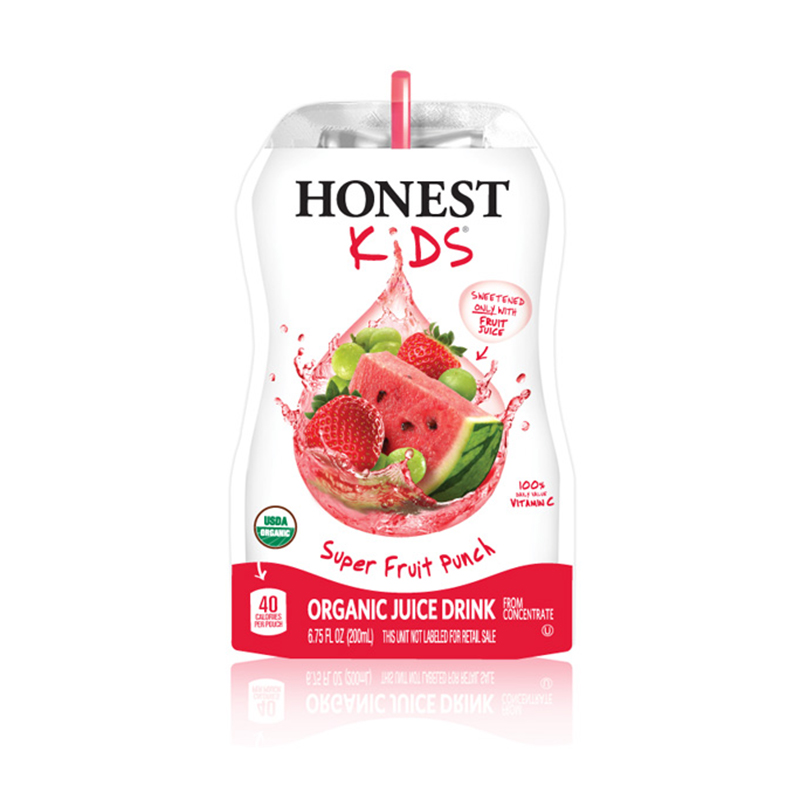- Study Says Most Parents Don’t Use Car Seats In Ride Share Vehicles Like Uber
- This 12-Year-Old Boy Is A Sophomore Aerospace Engineering Major!
- Fire Safety Experts Warn Of Hand Sanitizer Danger After A Mom and Kids Escape House Fire
- Recall Alert: Peaches May Be The Cause Of Salmonella Outbreak, 68 People Ill
- Summer Vacation In The Days Of COVID: Tips To Stay Safe
- How To Safely Grocery Shop During The Coronavirus Pandemic
- Michigan Teen With Vape-Related Illness Undergoes Double Lung Transplant
- Teen Kicks Off Anti-Vaping Campaign From Hospital Bed
- Teenager Receives Life Sentence For Strangling Sister To Death Over A Wi-Fi Password
- Toddler Falls To Death From 11th Deck of Cruise Ship
What Is The Best Juice For Kids


It is estimated that the average American consumes around 150 pounds of refined sugars a year. Too much refined sugar in the diet is linked to many adverse health conditions. Since many are having 4 times that amount, they are also reaping the health consequences of consuming too much sugar in drinks and other foods. Some of those include:
- Obesity
- Type 2 Diabetes
- Heart disease
- Cancer
- Gum Disease
- Tooth decay
- Shorter lifespan*
- Early Puberty in Girls**

The USDA released their 2015 Dietary Guidelines recently and it recommends the following concerning sugary beverages:
- Remove all sugary drinks from schools across the nation.
- Establish a separate category for “added sugars” on food and drink nutrition labels.
- Since there is substantial evidence that sugary beverages contribute to type 2 diabetes and therefore should greatly be reduced from Americans’ diets.
What are the most sugary drinks?
A list was put together for the top most sugary drinks on the market but you may be surprised to learn that a few are often perceived as healthy drinks for kids:
Minute Maid Cranberry Grape
 Per 8oz: 38 grams
Per 8oz: 38 grams
15.2oz bottle: 72.2 grams
Note: “25% Fruit Juice”. Also – Cranberry drinks often have a lot of added sugar because cranberry is a very bitter fruit.
Newman’s Own Limeade

Per 8oz: 34 grams
Per 16oz: 68 grams
This drink may not have any high fructose corn syrup, but still produces a huge blood sugar spike.
At around 6 months of age, many parents wish to introduce juices into their babies’ diet. Although it is not required as part of a healthy diet, it is acceptable to offer juice in moderation. Some juices however, are higher in sugar than others. It is advisable to offer juices lower in sugar content to kids of all ages, including babies.
Here’s what you can do to make sure you are giving your child the best option:
- 1. Limit the intakeRegardless of the sugar content, fruit juice contains a lot of natural sugar and acid which can harm the teeth. For this very reason, children should not have more than a half a cup of 100% fruit juice per day. For dental health specifically – it is better to drink fruit juice with meals than between meals.
- 2. Make juice healthierYou can choose to dilute the juice with water to decrease the amount of sugar you are giving your child. Some brands of juice made for babies and toddlers will have already diluted the juice, but you will get more product for your money and an added health benefit if you choose to dilute it yourself.
- 3. Lowest sugar juicesMost ranges of 100% fruit juice range from about 20 to 35 grams of sugar per cup. White grape, pineapple and apple juice all have less than 25 grams of sugar per cup while regular grape and cranberry juice have about 35 grams of sugar. Always choose to give the lower sugar juices more often than the higher sugar options.
- 4. Read the label and choose the right brandUnless the packaging displays “100% fruit juice” on its label, it is likely not the case.
I like the transparency from Honest Kids by Honest Tea. They changed their ingredients not too long ago, to eliminate cane sugar. The drink is sweetened only with fruit juice which brings the sugar count down, to only 9 grams per pouch. You can also find all the nutritional information of each and every flavour of juice on their website.








Joan
November 26, 2015 at 7:03 am
And what about ice tea – does this contain a lot of refined sugar?
Hayley Malan
November 26, 2015 at 8:51 am
Hi Joan.
It depends – sweetened ice tea can contain up to 22g of sugar per 8-ounce serving whereas the same portion of unsweetened black iced tea contains no added sugar! Make sure to read the labeling before indulging.